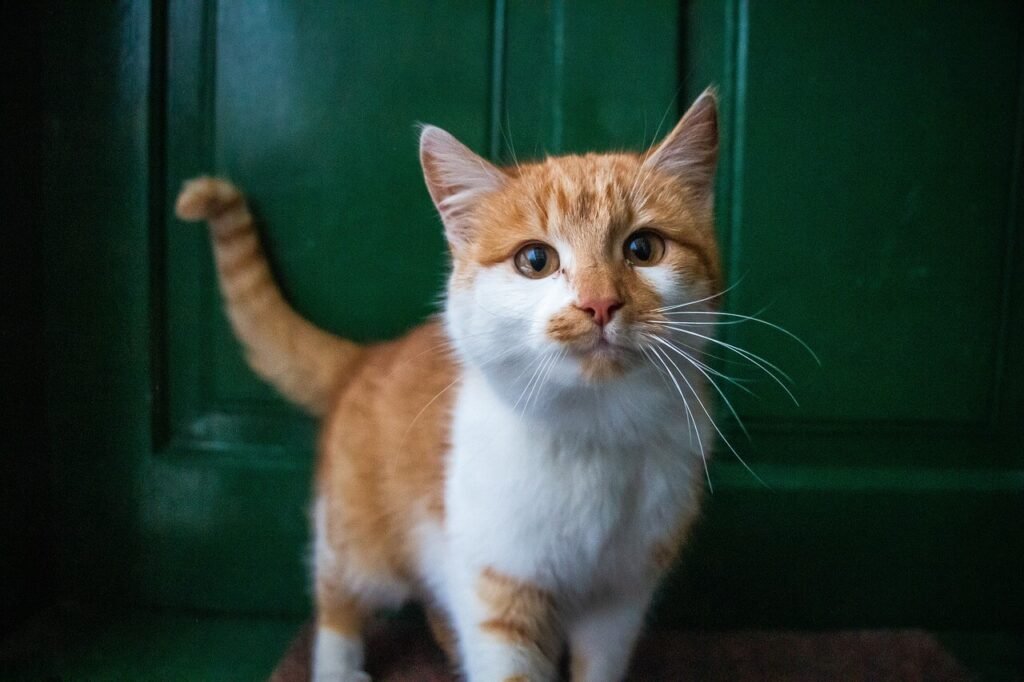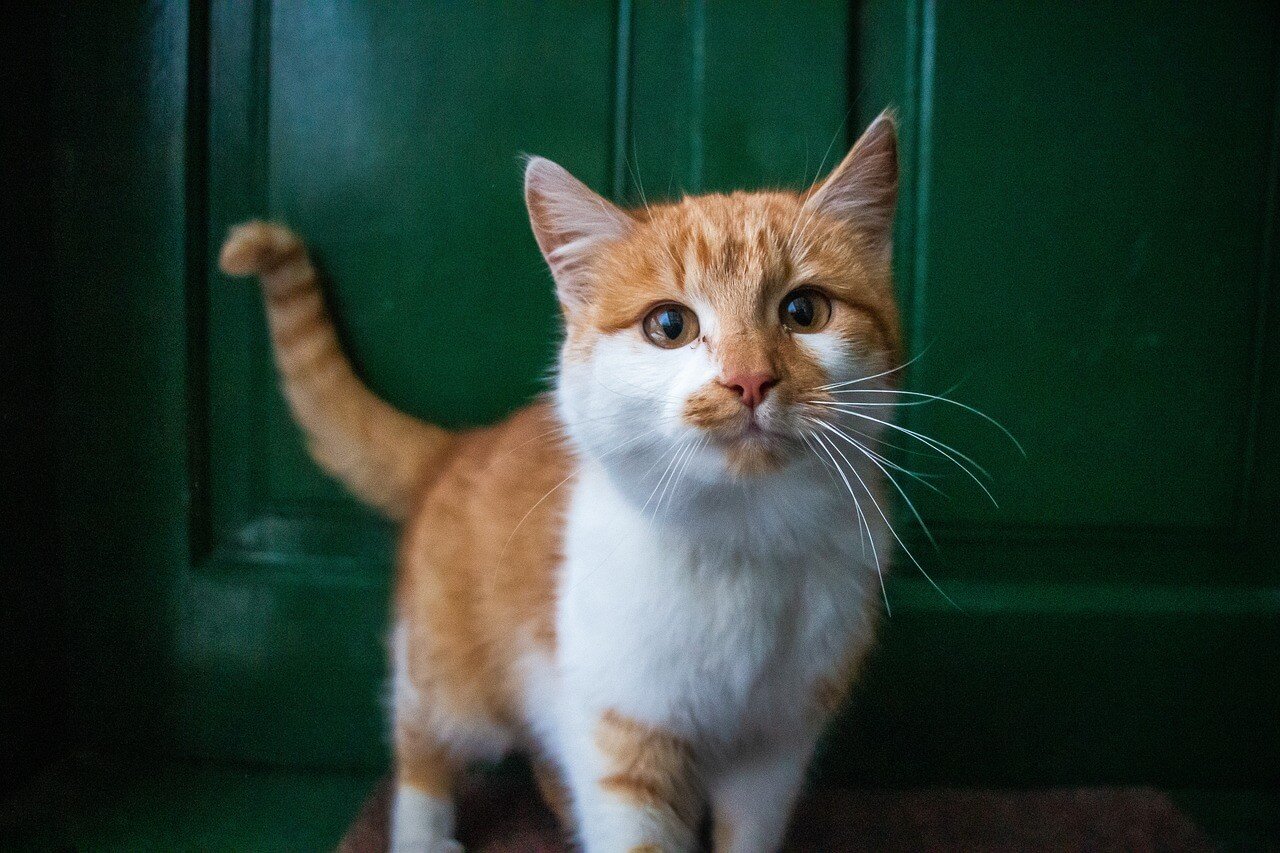What Does Cat Spray Smell Like? Understanding the Distinctive Odor
If you’ve ever encountered cat spray, you know it’s an unmistakable and potent scent that lingers in the air. But what exactly makes this smell so unique, and why do cats engage in spraying behavior? Whether you’re a seasoned cat owner or new to feline companionship, understanding the characteristics of cat spray can help you identify, manage, and address this behavior effectively. In this blog post, we’ll explore the distinct smell of cat spray, its causes, and practical solutions to prevent and eliminate it from your home.
The Distinct Characteristics of Cat Spray Smell
Cat spray has a strong, pungent odor that sets it apart from regular urine. Its unique composition contributes to its intensity and lingering presence. Here are some key traits that define the smell of cat spray.
Ammonia-Like Undertones:
The scent often carries a sharp ammonia-like quality, which can be overwhelming in enclosed spaces.Musky or Skunky Notes:
Cat spray contains pheromones, giving it a musky or skunk-like aroma that signals territorial marking.Fishy or Rancid Elements:
Some describe the smell as having a fishy or rancid undertone, which is more pronounced than typical cat urine.Persistent and Lingering Presence:
Unlike regular odors, cat spray clings to fabrics, carpets, and walls, making it difficult to eliminate without proper cleaning.Varied Intensity Based on Gender:
Unneutered male cats tend to produce a stronger, more pungent spray compared to females or neutered males.
Understanding these characteristics helps identify cat spray quickly and take appropriate action to address the issue.

Why Do Cats Spray? Common Causes and Triggers
Cats spray for various reasons, and identifying the root cause is crucial for addressing the behavior. While it may seem like a nuisance, spraying is a natural form of communication for felines.
Territorial Marking:
Cats spray to mark their territory, especially in multi-cat households or when they feel threatened by unfamiliar animals.Stress or Anxiety:
Changes in the environment, such as moving homes or introducing new pets, can trigger spraying as a coping mechanism.Sexual Behavior:
Unneutered cats, particularly males, spray to attract mates and assert dominance during mating season.Health Issues:
Urinary tract infections or other medical conditions may cause inappropriate elimination, mimicking spraying behavior.Competition for Resources:
Limited access to food, water, litter boxes, or attention can lead to spraying as a way to express frustration.
By pinpointing the underlying cause, you can implement targeted strategies to reduce or eliminate spraying in your home.
Check this guide 👉 Why Does My Cat Bite Then Lick Me? Best 7 Behavior Tips!
Check this guide 👉 Cat Coughing Without Hairball: Best 7 Expert Health Tips!
Check this guide 👉 Understanding Cat Reverse Sneezing: Best 7 Expert Care Tips!
Preventing Cat Spraying | Cleaning Cat Spray Effectively |
|---|---|
Neuter or spay your cat early | Blot the area immediately to absorb liquid |
Provide ample resources (food, litter) | Use enzymatic cleaners to break down odors |
Reduce stress with calming products | Avoid ammonia-based cleaners, as they worsen the smell |
Create safe spaces for your cat | Test cleaning products on small areas first |
Monitor for signs of illness | Air out the room to dissipate lingering odors |
How to Identify Cat Spray vs. Regular Urination
Distinguishing between cat spray and regular urination is essential for addressing the issue correctly. While both involve eliminating waste, they serve different purposes and require unique solutions.
Location of the Incident:
Spray is typically found on vertical surfaces, such as walls or furniture, while regular urination occurs on horizontal surfaces like floors or rugs.Volume of Liquid:
Cat spray usually involves a smaller amount of liquid compared to the larger volume of regular urination.Purpose Behind the Behavior:
Spraying is a deliberate act of marking territory, whereas urination is primarily for waste elimination.Frequency of Occurrence:
Spraying may happen intermittently, often triggered by specific events, while urination follows a more consistent pattern.Odor Intensity:
Spray has a much stronger, more pungent smell due to the presence of pheromones, unlike the milder scent of regular urine.
Recognizing these differences ensures you respond appropriately to your cat’s needs and behaviors.
Tips for Managing Cat Spraying Behavior
Managing cat spraying requires patience and consistency. These tips can help you minimize or stop the behavior altogether while maintaining harmony in your home.
Neuter or Spay Your Cat:
Early neutering significantly reduces the likelihood of spraying, especially in male cats.Provide Enrichment Activities:
Engage your cat with toys, climbing structures, and interactive play to reduce boredom and stress.Establish a Routine:
Cats thrive on predictability. Maintaining a consistent schedule for feeding, playtime, and litter box cleaning can ease anxiety.Introduce New Pets Gradually:
When adding a new pet to the household, introduce them slowly to avoid territorial disputes.Use Pheromone Diffusers:
Products like Feliway mimic calming pheromones, helping to reduce stress-related spraying.
With dedication and effort, these strategies can curb spraying behavior and create a more peaceful environment for everyone.
Signs Your Cat May Be Spraying
Identifying spraying behavior early can help you address it before it becomes a recurring issue. Watch for these signs that indicate your cat may be spraying.
Increased Marking Behavior:
Frequent spraying around doors, windows, or shared spaces suggests territorial anxiety.Vertical Stains on Walls:
Look for yellowish stains or wet spots on vertical surfaces, which are classic indicators of spraying.Changes in Social Dynamics:
If you’ve recently introduced a new pet or roommate, your cat may spray to assert dominance.Excessive Scratching After Spraying:
Cats often scratch the sprayed area to further mark their territory.Behavioral Changes:
Spraying may accompany other signs of stress, such as hiding, aggression, or excessive vocalization.
Recognizing these signs allows you to intervene promptly and address the underlying issue.
Natural Remedies for Reducing Spraying
If you prefer natural approaches to managing cat spraying, these remedies can complement traditional methods and promote a calmer environment.
Herbal Supplements:
Chamomile or valerian root can help soothe anxious cats and reduce stress-related spraying.Aromatherapy:
Essential oils like lavender (used safely and sparingly) may have calming effects, though direct application should be avoided.Dietary Adjustments:
Feeding a balanced diet rich in nutrients supports overall health and minimizes stress-related behaviors.Interactive Playtime:
Spend at least 15-20 minutes daily engaging your cat in active play to release pent-up energy and tension.Calming Music or Sounds:
Playing soft music or nature sounds can create a relaxing atmosphere for your cat.
These natural remedies foster a stress-free environment, reducing the likelihood of spraying.
Preventing Future Spraying Incidents
Once you’ve addressed current spraying behavior, taking proactive steps can help prevent future incidents. These measures ensure long-term success in managing this challenging behavior.
Regular Vet Check-Ups:
Schedule routine visits to rule out medical causes and maintain your cat’s overall health.Environmental Enrichment:
Rotate toys, provide scratching posts, and offer cozy resting spots to keep your cat mentally stimulated.Consistent Cleaning Habits:
Clean previously sprayed areas thoroughly to prevent your cat from returning to the same spot.Monitor Multi-Cat Interactions:
Observe relationships between cats in your household and address conflicts promptly to avoid territorial disputes.Stay Calm and Patient:
Cats pick up on their owner’s emotions—if you remain calm, your cat is more likely to feel secure and relaxed.
By staying vigilant and proactive, you can prevent future spraying and maintain a harmonious home.
Frequently Asked Questions About Cat Spray Smell
Is cat spray harmful to humans?
While the smell is unpleasant, cat spray itself is not harmful unless it indicates an underlying health issue.
Can neutering stop my cat from spraying?
Yes, neutering significantly reduces the likelihood of spraying in both male and female cats.
Why does cat spray smell stronger than regular urine?
Cat spray contains additional chemicals and pheromones that make it more concentrated and pungent.
How long does cat spray smell last?
If untreated, the smell can linger for weeks due to the presence of oily compounds.
What should I avoid when cleaning cat spray?
Conclusion: Managing Cat Spray Smell with Patience and Care
Dealing with cat spray can be challenging, but understanding its causes and characteristics is the first step toward finding a solution. By addressing behavioral triggers, maintaining a clean environment, and seeking veterinary advice when needed, you can minimize spraying incidents and keep your home smelling fresh. Remember, patience and consistency are key when managing this natural feline behavior. With the right approach, you and your furry companion can enjoy a harmonious and odor-free living space.
Creating a Harmonious Home Free of Cat Spray
Dealing with cat spray can be challenging, but understanding its causes and implementing practical solutions makes it manageable. By addressing behavioral triggers, maintaining a clean environment, and seeking veterinary advice when needed, you can minimize spraying and enjoy a peaceful coexistence with your feline companion. Remember, patience and empathy are key—your cat isn’t acting out of malice but rather communicating their needs. With the right approach, you can transform your home into a space where both you and your cat feel comfortable and content.
Dog Tapeworm Life Cycle: Best 7 Expert Tips! – Learn how tapeworms infect dogs, spot symptoms, and break the cycle with expert prevention strategies.
Anxious Cat Body Language: Best 7 Expert Tips! – Learn to spot signs of stress, understand triggers, and help your cat feel safe and relaxed.
Anxious Dog Body Language: Best 7 Expert Tips! – Learn to spot signs of anxiety, respond effectively, and help your dog feel safe and secure.
Is Breeding Dogs Bad? Best 7 Expert Tips! – Explore the ethics, benefits, and risks of dog breeding to make informed decisions for a better future.





